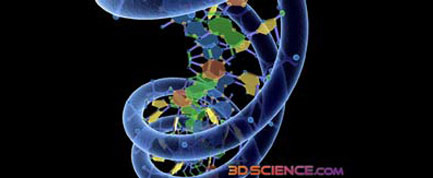DNA in Urine Can Reveal Disease

Simple urine tests for DNA fragments could help in the early detection of cancer, tuberculosis, HIV, malaria and potentially many other diseases.
Such tests might eventually also uncover rejection of transplanted organs before symptoms of inflammation manifest or genetically test fetuses for birth defects.
A decade ago, cell biologist David Tomei, CEO of New York molecular diagnostic company Xenomics, and his colleagues were the first to report that short fragments of DNA from throughout the body could cross the kidney's filters into urine.
Early diagnosis
The scientists at Xenomics realized tests of such genetic material could yield vital information on a wide range of conditions in the body in a safe, noninvasive manner. They have completed clinical studies on hundreds of patients to detect mutations linked with colorectal and pancreatic cancer, viruses such as HIV and bacteria such as tuberculosis, anthrax and Helicobacter pylori, the microbe that causes most ulcers.
They can also test for parasites such as malaria and Leishmania, which is of growing importance to U.S. soldiers returning from Afghanistan and Iraq. Leishmania is spread by the bite of infected sand flies and can cause skin sores, fever, weight loss, and an enlarged spleen and liver.
A model of double helix structure of DNA with its base pairs that link in myriad ways to create the various blueprints for life as we know it. Image courtesy 3DScience.com. All About Genes and DNA
The tests for malaria can potentially detect the first stage of disease, when the parasites have infected liver cells. No test currently available on the market can diagnose this stage. Moreover, "this stage kills over 5 million children in the world," Tomei told LiveScience.
Get the world’s most fascinating discoveries delivered straight to your inbox.
Xenomics plans to submit its clinical findings regarding the diagnosis of active pulmonary tuberculosis to the FDA in 2007 for regulatory approval. It also announced on Aug. 11 it would complement this diagnosis study by enrolling patients into a program to monitor the status and effectiveness of drug therapies against tuberculosis.
More plans
The company hopes in the future to expand the tests to look for additional infectious diseases at a rate of five to 10 a year. It also plans to soon release kits that other researchers worldwide can use for their own genetic studies of urine.
Many cancers express the same mutations, so DNA tests cannot necessarily reveal which tissue or tissues cancer lurks in. Tomei explained the tests can also detect short fragments of RNA, a molecule akin to DNA, which may help pinpoint a cancer's location in the body.
In the future, the tests might also discover if the bodies of patients are rejecting donated organs. Currently, scientists detect such rejection by looking for inflammation in transplanted organs. Before such inflammation becomes detectable, cells in the donor organs die and release their DNA. Xenomics' tests could in theory spot that DNA, since it comes from a different body than its host.
Tomei notes the tests can also detect the genetic material of fetuses in the urine of their mothers. This raises the possibility of prenatal tests for diseases such as Down's syndrome, to potentially avoid the hazards of amniocentesis. Amniocentesis, which uses a needle to remove amniotic fluid from around a developing fetus for genetic tests, has a 1-in-200 risk in the second trimester of leading to miscarriage.
- Top 10 Mysterious Diseases
- Company Making Fake Urine for Researchers
- Spit Tests Could Replace Blood and Urine Samples

